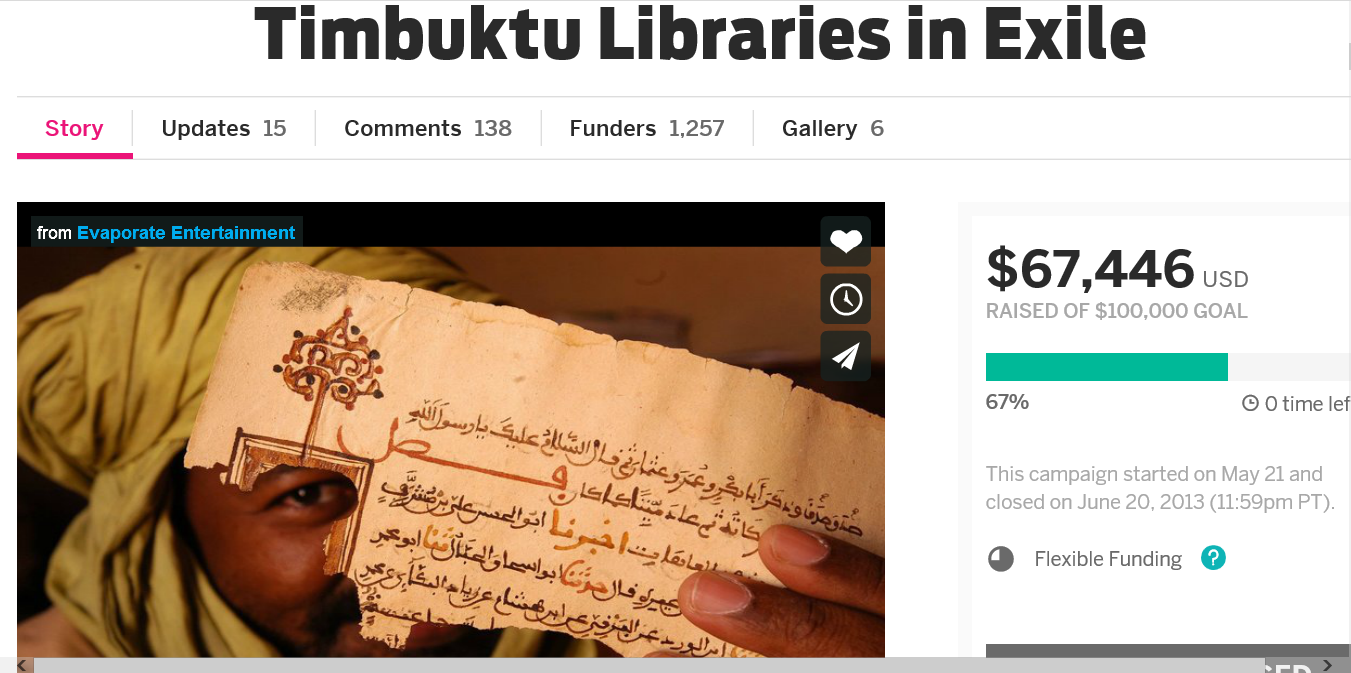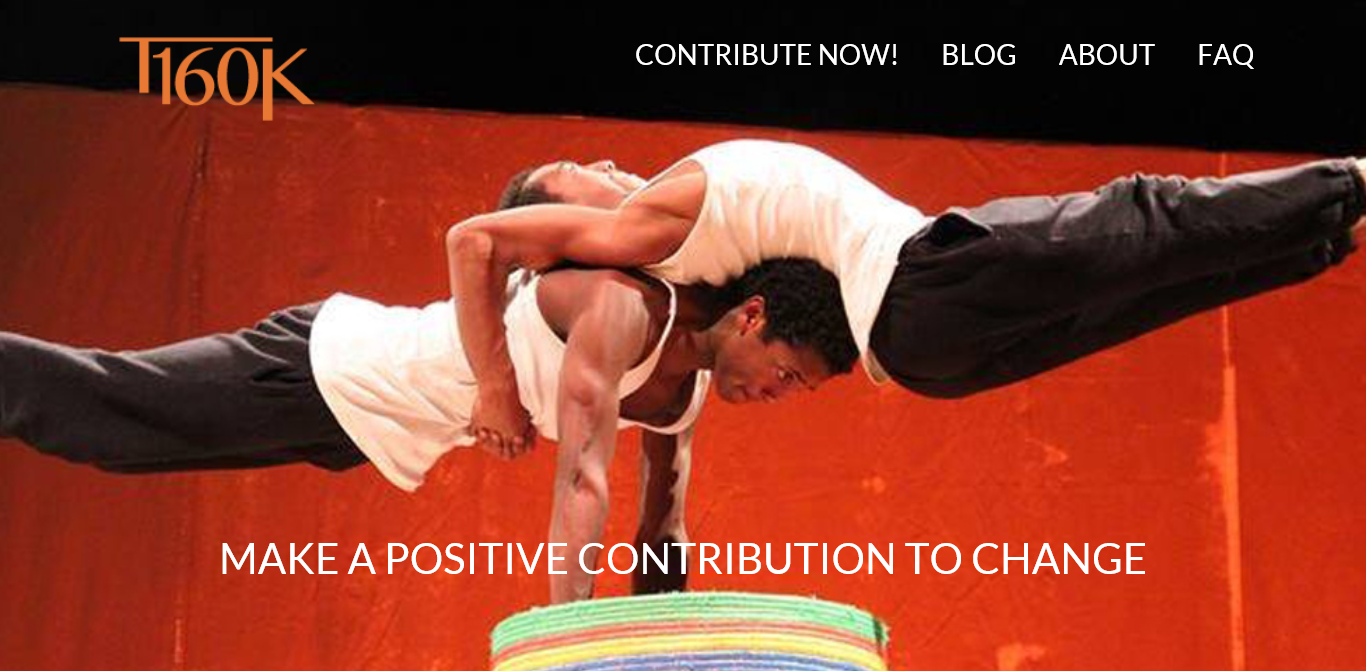In 2012, when al-Qaida occupied the north of Mali, precious transcripts from Timbuktu were evacuated to the capital, Bamako. Unfortunately taking them from a hot and dry climate to one that was more hot and humid caused them to start molding. An Indiegogo campaign was started called T160K. The campaign raised over $67K in flexible funding with a goal of $100K to buy new footlockers, archival boxes, and moisture traps required to save the manuscripts.
Since then, the team behind T160K has created their own crowdfunding platform and expanded their service to cultural and artistic projects in Africa. The platform allows backers to pledge either on a one-time or monthly basis. Rewards on the site range from mentions and thanks on social media or other media productions to invitations to participate in the various cultural events looking for support. T160K describes themselves as:
“[A] team of crowdfunders, supporters of culture, and software developers who believe that with technology, everyone can participate in positive change. We believe culture in all its forms plays an essential role in positive social and economic outcomes and hand-pick projects where crowdfunding can have the greatest impact.”
The site currently has a few projects including a $100,000 one to catalog the Timbuktu libraries which has raised over $10K so far. Others are Instruments for Africa, a project for Ethiopia’s first professional circus (Circus Debre Berhan), and Fendika Music Club (a place for Ethiopian musicians to work for a reliable and fair pay instead of only tips). Fendika Music ClubFendika Music ClubFendika Music Club
A post by The Guardian notes that the founder of T160K:
“Stephanie Diakité, a 56-year-old cultural development specialist who helped her friend, the Timbuktu librarian Abdel Kader Haidara, evacuate the manuscripts, wants to revolutionise the funding of culture in Africa by connecting communities, often in different parts of the world.”
There are now countless platforms across the world devoted to art and creative projects (The Soho Loft has a comprehensive global list). Still, with all of Africa’s troubles it seems like for many the preservation of these manuscripts and of their culture is currently of high importance. In an interview with Star Africa, Diakité said:
“In Mali, the Timbuktu Manuscripts can play a role as powerful tools to help this country face the challenges of rebuilding and strengthening peace … they address issues that are hot topics in Africa, such as peace, good governance, respect of the women rights or protection of the environment. At last, the Timbuktu Manuscripts have a formidable power: they unite men and women beyond their differences. The conditions of their evacuation bear witness to that. The campaign we are leading does provide daily confirmations of that fact.”
The team behind these campaigns is hoping that with the right technology and crowdfunding efforts they can avoid bending to the requirements of grant providers and start rebuilding their culture in a more collaborative and open way. Crowdfunding has already proven itself as a viable option for many different people, projects, and situations. This is another example of how groups are reaching out globally and attracting interest in common projects and goals.





